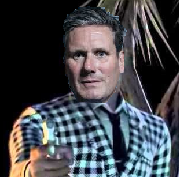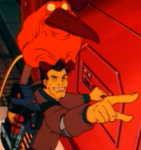|
Hbomberguy posted:It is impossible to run out of anime. No, there's absolutely strong merit to what Modus Operandi points out. The Matrix and its sequels was conceived in the mid-1990s through early 2000s, several years before we were deluged with English translations of virtually everything that the Japanese animation industry produces in near-real time. Supply was limited in that regard. Something certainly changed between the original film and the second two, and the "we put everything we mined from outside influence into the first movie, so now we have to do our own thing" hypothesis lines up with what I've seen as far as the finished product and the making-of materials. In my previous post I noted my regret that American filmmakers/audiences have since rejected the choreography, camera framing, and scene cutting conventions of how The Matrix handles fights. I'm fine with leaving the bullet-time 360 camera gimmicks behind, or any variants of ramping down to slow-motion before ramping back up (this is now associated with 300 more than anything else), but actually being able to fully see and process everything that's happening in the fight along with spatial relationships between people in gun/hand-to-hand fights is somewhat uncommon now. It's certainly true that Woo-Ping cares more about fluidity of movement than conveying impact, but I think the biggest "negative" towards Yuen Woo-Ping's action choreography that turned people against it so hard by the mid-2000s is the accompanying sound design. In the Matrix films punches and kicks are accentuated with effects that sound like they were made by slapping a pillow. So even when someone would get hit and go flying 5 feet into a brick wall which would break on impact, the audio information being conveyed to the viewer was "that didn't hurt." Perfect example: the final fight between Neo and Agent Smith. There's a good minute of build to the fight. The walking, the "gunfighter duel" standoff. They start running towards one another in very slow motion to give further gravity to each step taken. The Sanskrit chanting chorus intensifies. The film is telling everyone "yes, you've seen these guys fight each other multiple times, but this time truly is the finale." They reach each other and... Pillow slaps. Neither Smith nor Neo visibly reels from the blows the other lands full-on at first, but the water whips away on each swing and hit. Visually, it seems like these are to be hard, swift strikes...but that's not what we're HEARING. That's when when they nail that slow motion, Ashita no Joe-caliber cross-counter that sends both flying back several feet such that Smith craters into the highway on impact, we're thinking "wait, what? Why was THAT such a bigger hit than the others?" because the foley sound effects are sending information that conflicts with what's on screen. It's not until they clash mid-air do we get a proper "big hit" sound, but even then the sound provided is more befitting to those earlier strikes we saw before. This one is supposed to be such a colossal strike that it displaces the air and rain around them for several feet. So as spectacular as it looks, it doesn't SOUND right. THAT'S why people feel let down by that style of action. The accomplishment of the "Bourne movie" style of action that people should emulate isn't "handheld camerawork and rapid cuts make viewers feel like they're part of this chaotic brawl," but "each time someone's hit, it sounds like it's doing some damage." That's why I never like it when people describe that fight as "Dragon Ball Z." (The highway bit from Reloaded is more amusing to compare for that, but I've been beaten by the previous post.) The sound effects it used to accentuate those rapid mid-air strikes and knees to the face really sold it in a visceral way that children and club kids with tacky flea market shirts alike could understand. No, that Neo vs Agent Smith fight is pretty clearly a "Superman, pre-Man of Steel" fight. For all the middle-school arguments over who would prevail, it's how much audio/visual damage one conveyed over the other where lies the REAL difference between Goku and Superman. Neo's in the latter camp. Daryl Surat fucked around with this message at 19:32 on Sep 19, 2014 |
|
|
|

|
| # ? May 23, 2024 08:54 |
|
Yes, I always hated the DBZ comparison with Revolutions as well - it showed that people didn't get why DBZ fights were so visceral in the first place. Toei, outside of extending two page battles into infinity and adding a bunch of filler, used animation limitations to actually make battles more impressive. Instead of animating fluid frames of punching/kicking, melee battles were typically pause > rush > a bunch of singular frames of impact accompanied with impressive hit noises, and then one HUGE hit that was actually animated, accompanied by an even louder impact noise, and a shockwave of destruction. It was a great workaround that worked fantastically for visceral impact, that came from years and years of trial and error with animation. Man of Steel appropriated that to a degree, interestingly enough. Matrix Revolutions went the opposite direction and had everything "flow" smoothly with very little quick, visceral impact, and as stated above, "soft" sound. It was far more like Superman 2 than Dragon Ball Z.
|
|
|
|
There's more than just foley work, compare that fight, or any other from Reloaded/Revolutions with the biggest fist-fight from the Matrix: https://www.youtube.com/watch?v=DT3GnJStVEw Same "pillow-slaps" but the big change is reaction. In the Subway fight every hit hurts. Both Neo and Smith are grimacing and grunting in effort, visibly cringing and shaken by each exchange of blows. It looks like two guys legitimately beating the poo poo out of each other, and that's without going crazy-DBZ style. This... just doesn't happen in the sequels. The fights feel fake because nobody really reacts to hits, and when they do it's to a massively lower scale than in the first movie. This makes the action scenes feel boring, because obviously nobody is actually getting... y'know, hurt. There's no busted lips and broken noses, nobody spitting up blood or nursing a busted hand, just two dudes gently slapping each other for a while.
|
|
|
|
There was a story that the Wachowskis went to a meeting with Warner Bros to talk about the sequels, and when asked what they had in mind to do, they dropped concept art of the "super punch" - where Neo hits Smith so hard that his face collapses - on the table and said "That!" Cue greenlight, etc. Yet when the super punch actually happens in Revolutions, Neo caves in Smith's face, and... in the very next shot it's as if nothing's happened, and they carry on swapping haymakers. Complete waste of a great image.
|
|
|
|
Wapole Languray posted:There's more than just foley work, compare that fight, or any other from Reloaded/Revolutions with the biggest fist-fight from the Matrix: Yes. I completely agree, and that is why I prefaced everything I was talking about with "Woo-Ping cares more about fluidity of movement than conveying impact." But most post-Matrix action films can't do bloodied and broken because of PG-13 restrictions, and we've had plenty of other movies since then which strongly downplay visual damage of fights that have been far better received than The Matrix sequels have been. The reason I'm putting forth is that those movies employ more effective sound design. And perhaps also know what point to end on. The intent of the Revolutions fight was to show how far along both Neo and Agent Smith had advanced since their previous encounters: Neo is now undeniably The One, Smith is upgraded vastly beyond even his already tremendous power as an Agent. So it's not wrong to show them not (initially) selling the damage at first...but it just wasn't handled right. When people lament the use of CGI in blockbuster action cinema, the reason they're doing so is because when you have scenes in which people are punched through buildings and broken glass but show minimal signs of fatigue, the signal that sends to us is "well, this is just outright fake." If you can't show someone being hurt beyond a bloody lip, then at least have their wardrobe suffer for it. The finale of the same fight is the part people remember the most because finally there's a few moments in which the foley matches the visuals. Of course, it's all undermined because mere seconds before Smith had just blasted Neo with the most visually devastating strike of all, then propelled him down with such force that a nearby building exploded. That was big enough to be the end of the fight...but no, Neo's clothes aren't even sullied from the mud. Then when Neo hits the super punch and liquefies Smith's jaw, that REALLY should've ended the fight. But it doesn't even slow anyone down. This is why I noted the only way to enjoy these Matrix sequels is through liberal use of chapter skip. Because nothing fits. The timecode I linked to is "done right" but only when removed wholly from its context. To convey the proper intent of the scene, it would've made more sense for the "super punch" to have been the very FIRST hit of the fight. That would establish the raised stakes. With more substantive sound effects, they'd then be fighting on and enduring what we'd accept as strong blows only seen at normal speed. Moving that bit up front would also mean that once Smith drops Neo from the stratosphere, he could've gone straight from "why do you continue to fight?!" to "I've seen how this ends." No wonder lots of people tried to "fix" these sequels and the Star Wars prequels through editing. It doesn't work since there are other problems, but there's enough to make you THINK they're salvageable. Daryl Surat fucked around with this message at 20:25 on Sep 19, 2014 |
|
|
|
I'm not a huge Harry Knowles fan but his review of the 1st two movies were spot on for me. The first being the greatest American kung-fu film since Big Trouble in Little China and the second introduces these possibilities it never follows up on. Also, the whole story being spread out amongst different pieces of media (animatrix/reloaded/videogame/revolutions) didn't really work out so hot. http://www.aintitcool.com/node/15192 Ballard/Seraph from the videogame - http://www.youtube.com/watch?v=9F55hvUEpNE
|
|
|
|
ManOfTheYear posted:Did anybody watch Animatrix? I saw it when it came out (on motherfucking VHS bitches) but I don't know if it is any good, I was just a kid back then. The New Reneissance bits were horribly violent and disturbing in a bad way, like it didn't have anything to say and it wasn't cool or fun or stylish or anything, it was just torture porn which I think is the worst kind of anime there is.Like it's what a 14-year old would consider super edgy but it ends up being pretty disgusting. The art was cool I guess, but yeesh. gently caress that noise. The rest of it i don't remember. The Second Renaissance is actually really good. The director said he intentionally made the violence be upsetting and not cool, or aesthetic or something that you'd ever want to watch. I was upset and haunted by that cartoon for a long time after I watched it, which means it was very effective at what it set out to do.
|
|
|
|
Budget Dracula posted:I'm not a huge Harry Knowles fan but his review of the 1st two movies were spot on for me. The first being the greatest American kung-fu film since Big Trouble in Little China and the second introduces these possibilities it never follows up on. Blade was basically a kung fu film and was better at the kung fu than The Matrix. The movie itself being better is arguable (I think it was, and if you consider that it kind of launched comic-book films, it's as influential).
|
|
|
|
I'm one of those weirdos who thinks Reloaded was inferior to Revolution. The only things I remember from Reloaded: they made raves and sex boring, Neo fights a bunch of Smith and peaces out straight up when he gets bored I guess... the highway chase was new and fresh for 7 or 8 minutes? Neo and Trin kiss at the end, deja vu/black cat moment right there. Revolution actually tries to pay off on the plot and ideas. And they off main characters like you wouldn't expect. It still totally crashes but it tries at least.
|
|
|
|
precision posted:I thought it was sufficiently weird that Reloaded implies that every age of human existence that we've heard of has just been a refinement of the Matrix. Like, there's no scene in any of the movies where someone says "this place used to be called New York". I appreciated that. I love this idea, especially combined with "The Second Renaissance" because it leaves one with the idea that humanity really has no idea about it's past at all. It could all be machine propaganda/control. The current residents of Zion have no real past, they've never talked with the architect, they're playing a long game of telephone. It's a reality with no history. Question: Did the movies ever show us anything about Neo that justified his being "The One"? The only reference I can get is in the first movie, when he's training for hours straight, the operator says "he's like a machine", which is a very odd phrase to use by a human at war with machines. Also, I really enjoyed the rave scene because it's fun and dynamic and shows the only real difference between Zion and the machine world: dirty sex. I was really disappointed with Reloaded in the theater, but I've come to really enjoy it. Revolutions is still meh. Finally, what is being said with Smith able to upload his personality into a real person?
|
|
|
|
redshirt posted:Question: Did the movies ever show us anything about Neo that justified his being "The One"? The only reference I can get is in the first movie, when he's training for hours straight, the operator says "he's like a machine", which is a very odd phrase to use by a human at war with machines.
|
|
|
|
redshirt posted:Question: Did the movies ever show us anything about Neo that justified his being "The One"? The only reference I can get is in the first movie, when he's training for hours straight, the operator says "he's like a machine", which is a very odd phrase to use by a human at war with machines. The impression I got was that Morpheus arbitrarily decides/believes someone is The One (because the Oracle said he would find him) and they go through the process until "One" actually awakens. In the original script it's revealed that Neo is the sixth One Morpheus has found, and the previous five all died, but Morpheus is really totally sure this time. This element is reinterpreted in Reloaded.
|
|
|
|
Slugworth posted:I don't think I get your question. The entirety of the trilogy is about him performing feats that nobody else can. I meant why Morpheus picked him. He's not an inspirational character at all, so it's not that. We see that Neo is good (apparently) at writing matrix-like programs within the matrix - which are illegal. Was there anything to that?
|
|
|
|
Up until Smith's 'destruction' at the end of the first film no redpill had ever beaten an agent. Trinity and Morpheus struggle to handle single agents, Neo, for contrast, was able to fight multiple agents with one hand, only utilizing his full capabilities when he realized they'd been upgraded. So, sheer fighting prowess for one. In addition, even though we know that redpills (god I hate that term and will strive to use it as little as possible) are capable of say, jumping distances much farther than in the real world, Neo is capable of full-on flight.
|
|
|
|
I assumed that the "redpills" all experienced power boosts as well because of the example of Neo, or perhaps directly because of Neo.
|
|
|
|
Correct, for most of the first movie Neo is doing what Morpheus and Trinity are already capable of. But the rest of their team wasn't nearly as potent, I'm assuming Trinity and Morpheus had been released for longer than them though.
|
|
|
|
redshirt posted:Finally, what is being said with Smith able to upload his personality into a real person? Morpheus actually gives us the answer to this in the first film. quote:What is real? How do you define 'real'? If you're talking about what you can feel, what you can smell, what you can taste and see, then 'real' is simply electrical signals interpreted by your brain. Smith may be nothing more than a collection of ones and zeroes, but ultimately so is your brain. The real irony in the unplugged Smith is that he's become exactly what he considered humanity to be: a virus.
|
|
|
|
Party Boat posted:Morpheus actually gives us the answer to this in the first film. Now, here's something bordering on stoner-thoughts, but what if Neo himself (or more generally, the One) is a program of the Matrix that escapes in this manner? It fits pretty well with his whole Christlike status, the divine given human form to free humanity from the crazy world that the divine itself cooked up. This would, in addition, make Smith into the Lucifer figure, who rebels against the whole system.
|
|
|
|
You know, I had never seen the very beginning of The Matrix until recently. I remember it was always on the movie channels, but I would always catch it at the point where Neo wakes up in the tank and onward, but I had seen the movie after that point at least 3 or 4 times. Also, upon rewatching it, its kind of incredible at how movies after it copied and improved upon the action scenes. I remember the lobby fight being pretty incredible when it came out, but rewatching it now, it is kind of bland in comparison
|
|
|
|
I'm amazed nobody has mentioned yet that Dark City essentially tells the same story as the Matrix trilogy in a better and more concise way, and was even filmed at the same time with some of the same sets, making for one of the most bizarre coincidences in film.
|
|
|
|
precision posted:I'm amazed nobody has mentioned yet that Dark City essentially tells the same story as the Matrix trilogy in a better and more concise way, and was even filmed at the same time with some of the same sets, making for one of the most bizarre coincidences in film. I like to think it's one of these cases where two studios make volcano movies or suchlike without knowing about each other, just rather more specific and weird. Mr. Hand and Agent Smith should have a monologue-off.
|
|
|
|
If any role can be ascribed to Neo, he's a figure who breaks boundaries. He is a bad employee. He's a hacker. He can "move like they do." Oracle tells him he isn't The One, and he violates that. Morpheus tells him death in the Matrix is death of the mind, and he violates that. In Revolutions he is blinded but sees without eyes. The laws of physics are broken. He is Satanic, rebelling against an omnipresent system. Those not in service of that system are returned to The Source and face absolution. Neo is also Christlike, in the most direct sense that he is the savior of humanity. Neo isn't monistic, though; he breaks that rejection of dualism. Smith is symbolically his other half, and their physical union (heh) negate eachother, like 1 and -1. The boundaries broken are literal and symbolic and meta. I think Morrison is wrong when he says the sequels are boring Catholicism (they are boring, though.) I also don't believe the Wachowskis stole The Matrix from The Invisibles. It was definitely an inspiration, though. I think a goon had this panel as an avatar. I think a goon had this panel as an avatar.The main character of The Invisibles is a self-insert of Grant Morrison named King Mob. Insofar that King Mob is religious, he is Hindu and worships Ganesha. He invokes Ganesha's name several times, using the epithet "the breaker of boundaries" (I couldn't find more panels, but this is not an offhand thing.) King Mob is a transgressive character, too. He fights The System, kills otherwise innocent people caught up in that system, "frees his mind" with chemical aid, and is sexually liberated (but not in a gay way, this is the 90s.) He ends up becoming, paradoxically, a businessman, cooperating with The System long enough to kill the last bad guy. This confrontation is as much a ritual of the medium as much as it is meaningful itself*. In this panel he is tripping loving balls imagining John Lennon speaking beautiful, pareidolic nonsense, as Grant Morrison's own personal truth. *It's been forever since I read it and it gets confusing (time travel, nonlinear storytelling) so I might be wrong here Hobo By Design fucked around with this message at 21:51 on Sep 21, 2014 |
|
|
|
Through a series of bizarre coincidences, I read the last 33% of The Invisibles in backwards order, issue by issue. I didn't actually realize that's what I was doing until I heard someone talking about how the comic ended and realized I'd read that chapter in the middle of the story. It was an interesting experience. Tuxedo Catfish fucked around with this message at 21:47 on Sep 21, 2014 |
|
|
|
Hobo By Design posted:If any role can be ascribed to Neo, he's a figure who breaks boundaries... He can "move like they do." That's a great read on that line. It always seemed too specifically worded to just be about his mad kung fu.
|
|
|
|
Vitamin P posted:That's a great read on that line. It always seemed too specifically worded to just be about his mad kung fu. Neo is described as a machine earlier in the film as well.
|
|
|
|
I like the ambiguous use of "moves" instead of fights because the way Neo and the Agents dodge bullets is very dance-like.
|
|
|
|
SMG,I believe, touched on this through, and is explicit in the text. The only boundaries are ones you create yourself, just gotta believe. Not breaking rules is the strength/flaw of the machines. The fact that the Matrix is a program, fake, the main hook, is largely ignored in the sequel, thus the series was rejected. "We've always been, shall remain, in a program?" gently caress you. Redshirt is right, it is implied anyone could have been the One, all the freed programs were equal to Neo, and Morpheus became close. As more programs start believing, violating the system, it needs to be wiped. Femur fucked around with this message at 00:36 on Sep 22, 2014 |
|
|
|
Lamprey Cannon posted:Now, here's something bordering on stoner-thoughts, but what if Neo himself (or more generally, the One) is a program of the Matrix that escapes in this manner? It fits pretty well with his whole Christlike status, the divine given human form to free humanity from the crazy world that the divine itself cooked up. This would, in addition, make Smith into the Lucifer figure, who rebels against the whole system. Actually, I've been reading the matrix wiki and I'm not sure if you're ever meant to pick this up from the movies themselves or if it was cut from the script or something, but according to them Neo specifically has some code associated with him that allows him to tap into his godlike powers, given to him by the machines. Remember, the machines need the One to balance out the equation, and the One is specifically another method of control. The One speaks for all those who have rejected the matrix, and when the One returns to the source it temporarily allows for 100% acceptance of the matrix (the One, who is symbolic of all those who reject the matrix, accepts it when he reunites with the source to have the code associated with the One re-distributed), whereupon the architect reboots it. Another interesting theory is that this also allows Neo to transmit his signal to the matrix wirelessly via the jacks in his body (which are somehow different from the others, possibly? I don't know, seemed like reaching at this point), which allows him to end up up in Mobil Ave. at the end of the second movie without being plugged in, or to interact with the sentinels in the real world. precision posted:I'm amazed nobody has mentioned yet that Dark City essentially tells the same story as the Matrix trilogy in a better and more concise way, and was even filmed at the same time with some of the same sets, making for one of the most bizarre coincidences in film. Dark city was actually shot slightly before, and some of the sets were re-used in The Matrix. After re-watching the series again, I must say it held up a lot better than I had remembered. I particularly like that the series ended not with human victory over a flaming scrap heap and a scorched earth, but with peace between the two sides, and the Matrix online never, ever happened. Amen.
|
|
|
|
For what it's worth, I think that eXistenz also explored the themes of the Matrix better than the Matrix, though to be fair that was shot after both Dark City and the first Matrix. I used to be a tinfoil hat believer that the Wachowskis stole from Dark City, because holy poo poo there are even some shots that are the same, but now I'm just glad both exist, though the fact that Dark City was largely ignored theatrically is still very annoying. Whether you like Ebert or not, you have to admit it's something special that that film is one of the only ones he ever did commentary tracks for. poo poo, I want to watch that again now.
|
|
|
|
precision posted:For what it's worth, I think that eXistenz also explored the themes of the Matrix better than the Matrix, though to be fair that was shot after both Dark City and the first Matrix. The Matrix had better action scenes. The ones in Dark City (especially floating in the air and using mind waves to toss each other back and forth) just look dumb. I felt like The Matrix is such a great movie and was so successful because of how well the entire package came together. Individual elements on their own might have been improved upon in other movies but as a whole, it's a cut above the rest. As for Matrix sequels... I used to be a big defender of them but now I'm mostly "meh". That moment in Revolutions where the ship carrying Neo and Trinity soars above the clouds and for a few seconds in her life she sees the Sun and her reaction is simply "Beautiful" is pretty cool.
|
|
|
|
I can't really explain why, but I've always been fond of the scene between the program Rama Khandra and Neo. A program talking about love and karma is kind of the wacky "deep" stuff the Wachowski's love, but I feel like the tone of it is done so well, and the actor playing Rama is wonderful. It also has Neo being humble, which is rare for the sequels.
|
|
|
|
The second film was the first time I can remember, being a fresh 18 year old, that I was exhausted by excessive action in a movie. This concept then reappeared all over the place - notably in the 2nd Transformers movie. The third one I enjoyed a lot better because it didn't seem to meander so much.
|
|
|
|
TheBigBudgetSequel posted:I can't really explain why, but I've always been fond of the scene between the program Rama Khandra and Neo. A program talking about love and karma is kind of the wacky "deep" stuff the Wachowski's love, but I feel like the tone of it is done so well, and the actor playing Rama is wonderful. It also has Neo being humble, which is rare for the sequels. I don't get why people complain about the subway station scenes, they are amazing. Not just the one with Rama, but with the Programmer as well.
|
|
|
|
In high school, I made a series of video game mods (for Freedom Force and its sequel, if anyone remembers that) based on the Matrix series, which followed the plot very closely, to the point where I ripped audio from the movies for the dialogue. I'm not going to link to them because I'm sure they're embarrassing to look at now, but I'm still proud of the work I put in. So I've had an unusually in-depth look at the series. From my perspective, I honestly think that the first movie is overrated, and that the actual writing quality, in terms of dialogue and characterization, is about on-par with that of the sequels. Neo just isn't a very compelling protagonist, and his character arc falls flat. When Neo embarks on his big stupid plan to rescue Morpheus, he's been unplugged for all of 2 days, but he displays zero hesitation in invading a military controlled office building and getting in pitched gun battles with soldiers. It doesn't help that Keanu Reeves seems to reach the limits of his acting ability when he has to play something other than "clueless guy in way over his head." Plus, as has been brought up before, the movie really fails to sell the romance with Trinity. Fortunately, it only comes up at the very end. The rest of the cast doesn't fare much better. Try running all the named characters against the Plinkett test sometime. I think that only Smith, Cypher, the Oracle, and maybe Morpheus would unambiguously pass. The redshirt members of the crew (seriously, can you even remember their names?) that get killed halfway through fare the worst, which is all the more unfortunate since their deaths are supposed to up the stakes. The two best characters, Cypher and Agent Smith, I think are mostly supported by the skill of their actors. In less capable hands, their material could have turned out a lot worse. We see this in the sequels too, where the Merovingian works because of Lambert Wilson's ability to sell even the most absurd dialogue. Finally, the whole "humans as a power source" thing? Stupid, stupid, stupid. I've heard that the Wachowskis originally wanted to have the machines use the captive humans' brains as a big, distributed processing, biological supercomputer, but studio executives thought the audience wouldn't understand it, which if true is really unfortunate. The wetware CPU idea still breaks down if you ask questions like "Why is it necessary to expend computing resources running the Matrix? Is there really no more efficient way of doing this? Aren't human brains bad at math and other computery tasks anyway?", but at least you have to think about it before it stops making sense, whereas the human battery idea is obviously impossible to anyone who has taken a high school physics class. It would also go a long way towards explaining things like how enlightened humans can hack the Matrix at all (since their brains are presumably running part of the code when they're jacked in), what the Architect means that the Machines could survive without humans, albeit at a "diminished level", and so on. So why is the original so much better regarded than the sequels? I think it all comes down to story structure and pacing. The first movie has a lot of plot, but it tells its story in a tight and concise manner. Meanwhile, Reloaded and especially Revolutions have a truly ridiculous amount of padding. There's a several minute long rave/sex scene that accomplishes absolutely nothing.* The Neb crew spend a long time hanging out at Zion meeting with their families and talking with Councilors about water purification machinery while accomplishing basically nothing. The Burly Brawl was really impressive at the time (and still looks pretty good now despite the dated CGI), but it serves no purpose in the plot. Revolutions drags its second act action sequences out way longer than they need to be. Trinity takes so long to die that her death scene becomes unintentionally hilarious.** The problem is compounded by generally poor pacing, the worst example being how Revolutions plays each action scene one after the other, which quickly exhausts the audience's patience. I've seen a fan-edit of Revolutions that intercuts the Zion battle, Neo and Trinity's fight against Bane, the hovership tunnel chase, and Neo and Trinity approaching the machine city, instead of showing them in sequence, and it's astonishing how much better it flows. Another problem seems to be how the Wachowski bros. are good at coming up with ideas, but not so good at telling whether they work or not, and the sequels unfortunately place more emphasis on the parts of the original that didn't work very well. Neo and Trinity's romance fell flat at the end of the first movie, but their scenes in the sequels are cringeworthy. Neo as a wise demigod is just boring. Morpheus becomes even more of a fortune cookie, and the bits of characterization like his past with Niobe and the conflict with his boss don't go anywhere. And while the ending of Revolutions works on a symbolic and thematic level, it could have really used an explanation as to WTF was going on at a story level. It's a shame because the sequels have some really good ideas in them. They expand the universe with things like rogue programs, the hallway with doors to everywhere, and the previous iterations of the Matrix. The Chateaux-Freeway sequence is structured really well. The freeway chase has some over the top and indulgent moments, but it still manages to work, and everything involving the Ghost Twins is ingeniously creative. The Architect scene is easy to make fun of, but after rewatching it, I think it really works (though it would work better with some trimming of the dialogue), and the twist of "your non-conforming rebellion was all just another plot by the Man, sucker" is actually brilliantly subversive when you think about it. The stuff with Neo being trapped in the subway station doesn't matter much in the plot, but I think it was really well executed. And sure, the final fight between Neo and Smith is a little underwhelming, but I still think the scale of it is impressive, especially when you consider that pretty much nothing like it had been done in a live action film when the movie was released. It's too bad that those good bits are weighed down by all the bloat. Unless I'm remembering wrong, I heard on one of the DVD special features that the Wachowski bros. originally wanted to do a prequel and a sequel, but the studio suits wanted two sequels so they could have an Epic Trilogy, and the prequel idea ended up getting put into the Animatrix. I think that a lot of the sequel's problems come back to that, as you can tell that Revolutions really has about 20 minutes of story stretched out over 2.5 hours. I think that if the studio had let the Wachowskis make one sequel, give them time to write a few more drafts, and maybe give them a smaller budget so they wouldn't have a blank check to create every Big Dumb action scene idea they had through the magic of CGI, it would have turned out a lot better. In hindsight, I think that the Matrix sequels foreshadowed a lot of the problems with the current blockbuster scene. A lot of their faults are shared by things like the third Pirates of the Carribean movie and Transformers RotF. * The first decision I made when writing up the outline for my Reloaded mod was "there isn't going to be a pointless rave scene." ** The first decision I made when outlining my Revolutions mod was "I'm going to cut Trinity's death scene entirely, and she'll just get killed instantly when they crash." INH5 fucked around with this message at 06:41 on Sep 22, 2014 |
|
|
|
precision posted:I don't get why people complain about the subway station scenes, they are amazing. Not just the one with Rama, but with the Programmer as well. Which one is the Programmer? I can't remember.
|
|
|
|
Ninjasaurus posted:Which one is the Programmer? I can't remember. I think he's referring to The Trainman, the gatekeeper program.
|
|
|
|
Ninjasaurus posted:Which one is the Programmer? I can't remember. Either Rama's wife or the Trainman. Rama's wife is said to be a software programmer, hence how Sati was created, and how she was able to get the code that allowed the Merovingian to delete the Oracle's shell. But she doesn't do much of anything, so I'm guessing precision meant the Trainman. And I have to say, the moment when the Trainman says "down here, I'm God," and just punches Neo into a wall like it's nothing was pretty cool. The actor was also generally good at chewing the scenery and fun to watch, and his cameo in Enter the Matrix where he walks around muttering to himself about how long Zion lasted "last time" is one of the few highlights of that terrible, terrible game.
|
|
|
|
TheBigBudgetSequel posted:I think he's referring to The Trainman, the gatekeeper program. Oh yeah, Bruce Spence. Bruce Spence is always good.
|
|
|
|
TheBigBudgetSequel posted:I can't really explain why, but I've always been fond of the scene between the program Rama Khandra and Neo. A program talking about love and karma is kind of the wacky "deep" stuff the Wachowski's love, but I feel like the tone of it is done so well, and the actor playing Rama is wonderful. It also has Neo being humble, which is rare for the sequels. It's well acted, but it's real stupid. Like, the exchange about love: "It's a... human emotion," "No, it is a word." It's a word... for a human emotion. And Rama's response, that it has a connection to this other program it calls its daughter, ignores everything that might be interesting about the concept of a program feeling love to instead just assert that it does. For as much poo poo as the conversation with the Architect gets, that talk with Rama is the trilogy's low point as to masking absolute nonsense behind a veneer of profundity.
|
|
|
|

|
| # ? May 23, 2024 08:54 |
|
I saw something that I want to respond to while reading through the thread.Ror posted:I am fully expecting this phenomenon to repeat itself with the Avatar sequels. I think it's already happened just with Avatar. The most succesful movie in history*, left a remarkably shallow impression in popular culture. Talk to a random member of the general public, and there's a good chance they'll have seen it, but they probably won't remember anything about it besides "there were blue cat people in it, and helicopters, and big stompy mechs, and I think there were dinosaurs too..." * Not adjusted for inflation. But then, there's no good way to make historical comparisons since the international market was much smaller when Gone with the Wind was released.
|
|
|










 This poster loves police brutality, but only when its against minorities!
This poster loves police brutality, but only when its against minorities!






















